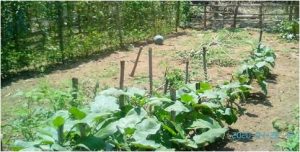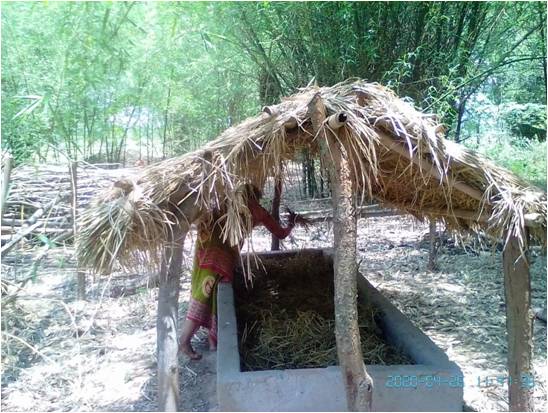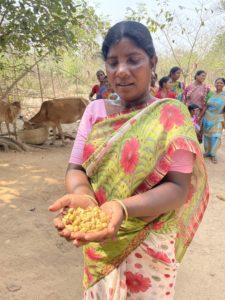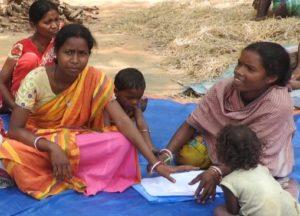It is surprising to find how Luski Soren, a housewife from Antapati village belonging to a small holder farmer family could change the land use practices within a span of three months time that had helped in diversifying the livelihood options and enhances the scope for earning some disposable income. It is more interesting to witness how even during the COVID 19 pandemic period she could meet the sustenance need of her family and also could earn some income.

Luski got the opportunity to receive training on establishing nutrition garden and production of organic inputs from IBRAD (Indian Institute of Bio Social research and Development) under the project “Integrated Landscape Management for Sustainable Agriculture” under RKVY program supported by the Department of Agriculture, Government of West Bengal. Soon after the training a motivated Luski has established a nutrition garden in 5 katha (8.25 decimal) of land adjacent to her homestead area. The land which otherwise remained fallow for most of the time of the year are used for cultivating different types of vegetables like brinjal, tomato, beans, bottle gourd, pumpkin, bitter gourd and various leafy vegetables year round. The seeds for the first time are provided by the project.
Luski has started earning some disposable income from her garden from the month of August 2020 whereby she sold 5 kg pumpkin and 10 kg beans as surplus and had earned Rs.150/-. In between the months of August to October she could sell vegetables worth Rs 200 per week on average. She has also formed a group along with two more members to produce vermi compost. In the month of August she harvested 50 KG vermicompost and used the compost in her nutrition garden. She is also using the organic manure like cow dung and organic pesticides like neemastra and dashapurni that is produced by her after the training in her nutrition garden.
The money that she has started earning may not be very high in amount to begin with but it makes Luski motivated and confident to further strengthen her activities and start production at a large scale by utilizing all the land that is under the possession of her family and changing the land use practices. Moreover, she has learnt to produce the critical inputs by using locally available materials that are making herself reliant and is helping to reduce her vulnerability.






